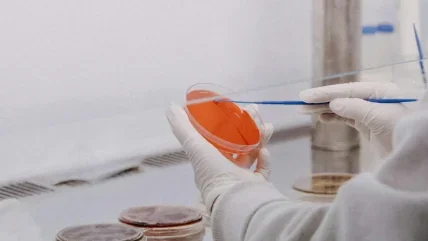
US-based biotechnology company Monod Bio has launched the LuxSit Pro family of products, which the company claims to be the world’s smallest and first commercial de novo luciferases.
Luciferases are light-emitting enzymes used in biotechnology for bioluminescence imaging microscopy, as reporter genes, and as fluorescent proteins for several applications.
Monod Bio is offering the LuxSit Pro products initially in two formats, a whole protein reporter format, and a split-pair format for studying protein-protein interactions.
The products are biochemically optimised for stability and brightness, with an overall performance improved by more than 150 times from its predecessor LuxSit.
Monod Bio CEO and co-founder Daniel-Adriano Silva said: “To our knowledge, this is the first time a de novo protein has reached the commercial market.
“With its design and performance, LuxSit Pro will empower researchers with a toolset suited for research and diagnostic applications.”
Monod Bio CSO and co-founder Alfredo-Quijano Rubio said: “LuxSit Pro establishes a new benchmark in stability and sensitivity. We believe this reporter will allow researchers across the life sciences to meaningfully advance their research.”
Intended for basic research and diagnosis, LuxSit Pro is available in adaptable formats, and customised for various applications, spanning comprehensive protein reporting.
According to the company, its new LuxSit Pro products feature enhanced brightness and an extended linear range for superior assay performance.
They also feature a small, hyperstable protein structure, and high specificity to the company’s in-house synthetic substrates, ensuring assay reliability and consistency.
In addition to LuxSit, Monod Bio is advancing the development of de novo protein binders and advanced protein biosensors, expanding protein engineering and diagnostics.
UW Medicine Howard Hughes Medical Institute investigator and Monod Bio co-founder David Baker said: “This is a real milestone for biology and computer science, and I am confident we will soon see many more de novo designed proteins mature into commercial products in the months and years ahead.”






